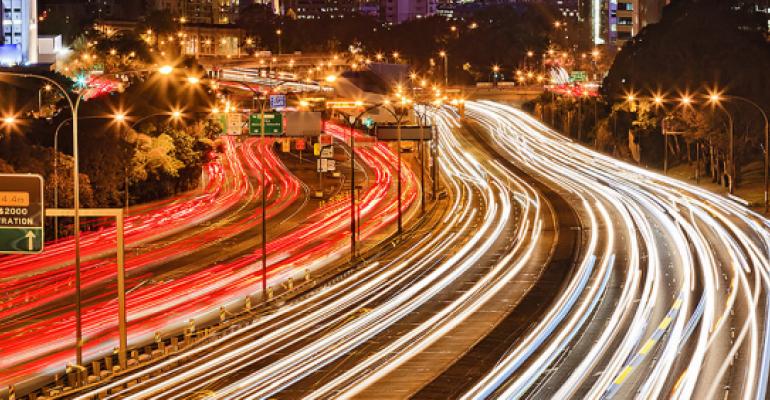Volkswagen is the big German elephant in the room as the Australian government orders a wide-ranging review of vehicle emissions, looking at everything from carbon-dioxide emissions standards to testing procedures and fuel quality.
While the auto industry welcomes the move, critics say it lacks urgency.
A ministerial forum chaired by Major Projects Minister Paul Fletcher will oversee an interdepartmental working group charged with examining issues including adoption of Euro 6 emissions and fuel-quality standards, fuel-efficiency measures for light vehicles and emissions testing for vehicles in conjunction with international regulatory agencies.
The working group will report back to the forum by June 30, 2016.
Australian Automobile Assn. CEO Michael Bradley says it’s important the government works closely with industry and consumer representatives to determine the appropriate contribution vehicle emissions can make toward achieving Australia’s greenhouse-gas-reduction and air-quality targets.
“Clearly, no sector or element of the national economy can or should be considered in isolation,” he says in a statement. “It is also critical that the government urgently undertakes a coordinated program of work that assesses the implications of the ongoing Volkswagen scandal, which has already raised serious questions regarding the way in which vehicle-emission information is provided to the Australian market and audited by regulators.”
Fletcher says the forum will allow Environment Minister Greg Hunt and Resources and Energy Minister Josh Frydenberg to join him in consulting with industry with the aim of reducing motor-vehicle emissions on Australian roads and in cities.
Keeping It (Relatively) Clean
“We do not have the same levels of smog pollution in Australia that other countries face,” Fletcher says in a statement. “Nevertheless, we must work hard to keep our air clean and reduce CO2 emissions that contribute to climate change by ensuring our new vehicles meet the world’s best standards.”
Fletcher says tough noxious-emissions standards already ensure air quality in Australian cities is good by international standards.
“It is the Australian government’s policy to harmonize our vehicle standards with international standards developed through the United Nations,” he says.
Fletcher says Australia recently adopted the United Nations-based Euro 5 noxious-emissions standards for light and heavy vehicles and the government now is considering adoption of Euro 6.
Frydenberg says the government has set a goal of improving national energy productivity 40% by 2030. “Improving the efficiency of vehicles is part of this goal,” he says.
Fletcher says the government also will consider measures such as incentives and standards to encourage the purchase of more fuel-efficient vehicles.
Federal Chamber of Automotive Industries CEO Tony Weber says his group welcomes the whole-of-government approach to addressing vehicle emissions.
He says FCAI members selling light vehicles in Australia are committed to developing and delivering new technologies that reduce CO2 emissions in their vehicles.
“Their commitment to deliver these technologies to the Australian market shows in the average industry year-on-year reduction of 2.4%,” Weber says. “Over the past decade, overall light-vehicle CO2 emissions have reduced by more than 20%.”
Weber says to win further reductions, a range of policy matters must be considered. This includes fuel quality, infrastructure and incentives for the take-up of low-emissions vehicles, vehicle-to-vehicle (V2V) and vehicle-to-infrastructure (V2I) communication technology, and the structure of the Australian vehicle fleet.
FCAI wants the forum to investigate reducing actual on-road operation emissions through the introduction of V2V and V2I communication technology, saying it has the potential to significantly improve traffic management by reducing congestion and fuel use along with improving road safety.
Room for Fuel Improvement
Raising fuel quality could see further reductions in CO2 and vehicle-pollutant emissions.
“In Australia, transport fuels are of lower standard than other major markets, especially the European Union, Japan and the U.S.,” Weber says. “This restricts the introduction of some engine variants and inhibits the performance of the latest generation of engines.”
Weber says emerging vehicle energy technology, including hydrogen and electric vehicles, presents another opportunity to further reduce emissions in Australia. “To effectively introduce a range of low-emissions vehicles, it is important the industry and governments work together to provide the appropriate infrastructure,” he says.
The environmentally militant Green Party says the creation of the forum lets the vehicle industry off the hook.
“In the wake of the VW scandal, finally the government has taken some notice of this mounting problem, but its announcement of a ministerial forum delays even the possibility of implementing mandatory standards until after 2017,” Greens Deputy Leader Larissa Waters says.
The Greens say they have legislation ready to go in the Senate that would bring the Australian fleet up to the European Union’s 2020 clean-air standard by 2023.
“Reducing vehicle emissions is the lowest-cost way of cutting climate pollution,” Waters says. “We need more than supportive rhetoric from the big parties. We need this fast-tracked and in place for the next financial year. It doesn’t make sense to keep delaying mandatory vehicle-emissions standards.
“We are at risk of becoming a dumping ground for the world’s dirtiest cars, with our nonexistent fuel-efficiency standards putting us way behind Europe, the U.S., China, India and Japan,” Waters says.





